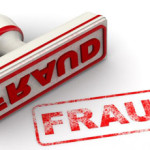Top EU banks guilty of multi-billion tax fraud

Tax-scams operated by the EU’s top banks cost treasuries €55.2bn, a cross-border investigation has shown.
The scams, dubbed “the biggest tax robbery in European history”, involved Deutsche Bank and Santander – the largest lenders in Germany and Spain.
They also involved Germany’s Commerzbank, Hypovereinsbank, Landesbanken, and Warburg Bank, British lender Barclays, French bank BNP Paribas, and global banks JPMorgan, Meryll Lynch, Morgan Stanley, and UBS.
The scams worked via so-called “cum-ex” buying of shares and bonds.
The latin term, which means “with-without”, is jargon for a kind of trade that enables banks to conceal the identities of their clients.
This, in turn, helps the clients to claim false, double, or multiple tax rebates on capital gains tax paid on the anonymous trades.
The fraud cost German taxpayers €31.8bn between 2001 and 2016, the investigation estimated. It cost France €17bn, Italy €4.5bn, and Denmark €1.7bn. It also harmed Austria, Belgium, Finland, the Netherlands, and Spain.
News of the problem first came to light in Germany in 2016.
But its full scale was exposed by a cross-border investigation, involving 19 media in 12 countries, which consulted more than 180,000 pages of documents, including letters from German prosecutors, and which published its findings on Thursday (18 October).
“This is the biggest tax robbery in European history,” Christoph Spengel, a tax expert at the University of Mannheim in Germany, told German newspaper Zeit.
The news comes on the heels of revelations that Denmark’s top lender, Danske Bank, perpetrated the biggest money-laundering scandal in European history.
The Danish bank funnelled some €200bn of “suspicious” Russian money into other jurisdictions via Estonia, that investigation showed.
Deutsche Bank previously admitted to handling some €10bn of illicit Russian trades.
The bank sector’s disgrace did not stop EU leaders, at a summit in Brussels also on Thursday, from agreeing to go ahead with a banking union.
“Everyone is determined to put a package on the table by the December summit that describes the banking union of the future and also says something about the roadmap – i.e. the way to a deposit guarantee and describes progress on the capital markets union,” German chancellor Angela Merkel said after the meeting.
The union would create a more stable regulatory environment, she said.
But the Danske Bank scandal has prompted debate on the merits of the EU scheme in Denmark.
The money-laundering case “makes the need to probe what we might get from being in the banking union even stronger,” Danish finance minister Kristian Jensen said on Friday.
“We haven’t made up our minds about all the positives and negatives of the banking union yet,” he said.
The opposition Social Democrats party said there was nothing in the EU “package” that would prevent the kind of abuses perpetrated by the Danish lender.
“Money laundering transcends borders. The Danske Bank scandal is enormous, but in reality it’s a symptom of more widespread problems with international money flows,” the Social Democrats’ financial spokesman, Benny Engelbrecht, said.
The cum-ex investigation also showed that tax information exchange between EU states did nothing to prevent the multi-billion euro fraud.
It disclosed a letter from the prosecutor in Cologne, Germany, to Santander, which said it was suspected of having “planned and executed trades” that facilitated “severe tax evasion”.
It also showed that German tax inspectors had raided the homes of Warburg Bank chiefs.
Most of the banks denied wrongdoing.
“In matters of morality, M.M. Warburg & Co … has no blame,” it said. Santander said only that it was “fully cooperating” with German authorities.
The cum-ex scheme was masterminded by Hanno Berger, a former German tax inspector, who now lives in Switzerland.
He told the Reuters news agency that he first gave his idea to Australian bank Macqaurie (also involved in the scams), but that the whole trick was based on a legitimate loophole in tax laws.
“They [the German state] cannot punish others for their mistakes,” he said.
Source: euobserver



























